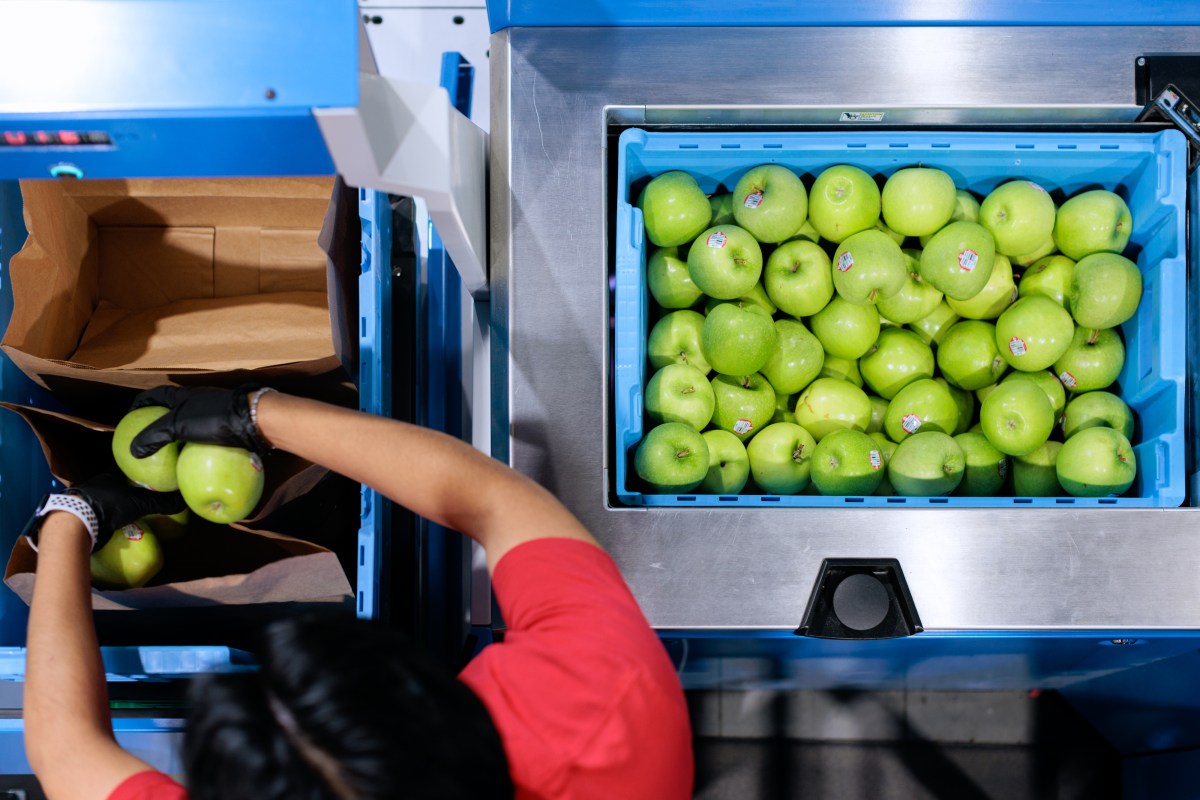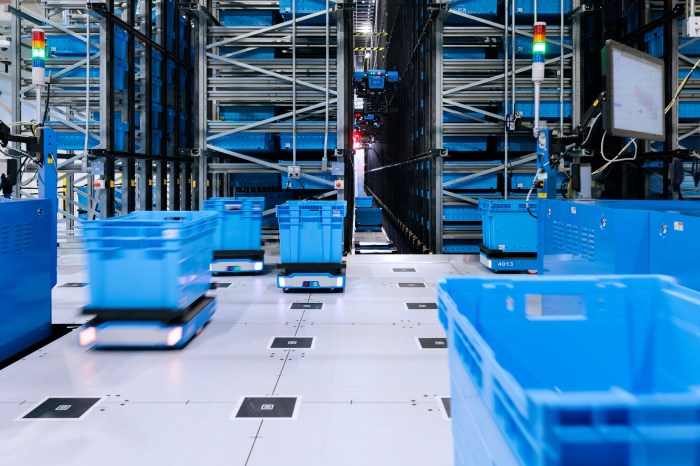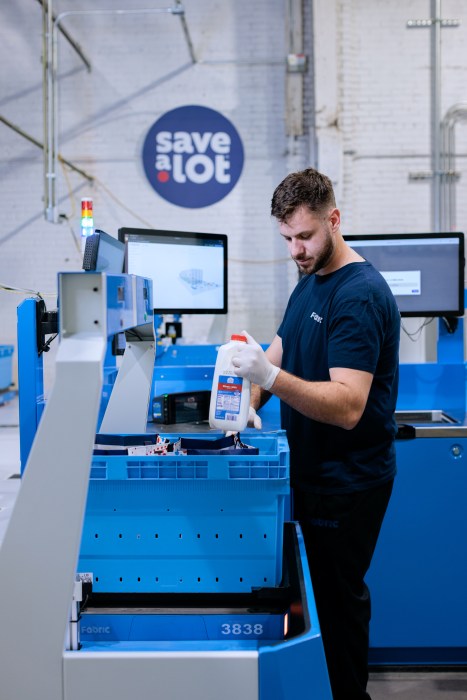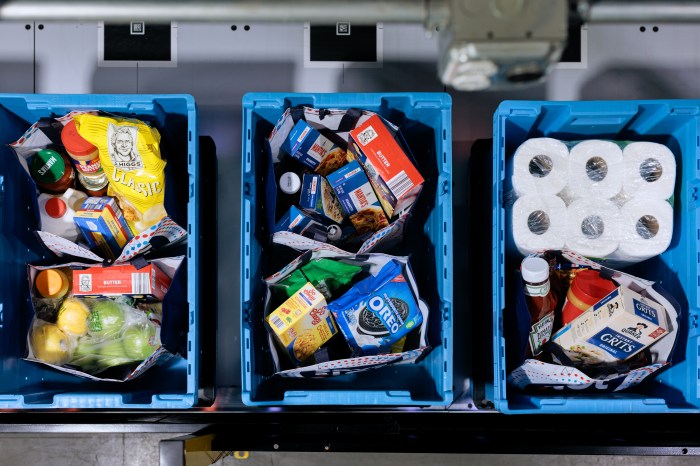
Save A Lot has partnered with automation company Fabric to open a new, almost fully-automated grocery delivery microhub in Brooklyn.
Photo courtesy of Save A Lot
A familiar company is opening a new quick-service grocery delivery hub in Brooklyn with technology it says could “revolutionize” food shopping.
Save A Lot, a discount grocery chain with more than 700 stores across the country — but none in New York City — is opening a new micro-fulfillment center in Kings County, promising fast and affordable grocery delivery.
The concept isn’t new in New York City. In 2021, the city was flooded with new companies promising 30-minute-or-less grocery delivery, most of which have since closed.
But Save A Lot’s model is different. Its new facility is almost entirely automated with tech from robotic fulfillment company Fabric. When an order comes in through UberEats, robots grab bins full of food and hand them off to other robots on the ground to be delivered to a human packer for delivery.

The system can put together a 50-item grocery order in as little as six minutes, according to Fabric, and orders could be delivered to the consumer’s door in half an hour. The company claims that facilities using Fabric automation pay higher wages and have less turnover than traditional grocery stores, and that the speed and low cost of automation means it’s faster and cheaper than shopping at a traditional grocery store.
“At Save A Lot, we’re committed to keeping prices low and making sure our customers have access to the essentials, especially as inflation continues to affect household budgets,” said Bill Mayo, chief operating officer at Save A Lot, in a statement. “Our partnership with Fabric and expansion into micro-fulfillment will streamline operations and allow us to offer accessibility to consumers wherever they are at competitive prices.”
Grocery store costs have increased roughly 25% across the country since 2020, according to NPR, higher than the overall inflation rate. Higher costs of labor and production, coupled with supply chain disruptions, have increased costs for grocery companies — which, in turn, have raised prices to maintain their profit margin.

New York City has been hit particularly hard by high prices at the grocery store, and many New Yorkers have reported they are struggling to afford basic foods.
A perusal of Save A Lot’s options on UberEats on Oct. 10 showed their prices were consistent with or slightly lower than other grocery delivery services. A dozen large eggs from Save A Lot runs $3.80, compared to $3.99 from GoPuff or Aldi delivery. A half-gallon of PET brand 2% milk was $2.17 from Save A Lot, while GoPuff’s cheapest option was $3.69 for Clover Farms brand and Aldi’s was $2.75 for Friendly Farms.
“Our partnership with Save A Lot uses advanced automation to tackle one of today’s biggest challenges—rising consumer prices,” said Curt Avallone, co-CEO of Fabric, in a statement. “Our micro-fulfillment technology improves efficiency across the supply chain, helping retailers address the broader operational needs while delivering an exceptional customer experience. We’re proud to support the mission to make quality, affordable groceries more accessible.”
Other companies have made similar promises in the past. In 2021, half a dozen companies promising to transform grocery delivery launched in New York City. Each operated out of micro-warehouses somewhat like Save A Lot’s, but with entirely human workers — no automation or robots.

Most promised lower-than-average prices, since they paid less rent than traditional grocery stores and had fewer overhead costs.
But, despite some initial success, quick grocery delivery apps started pulling out of New York City by December 2021. In April 2024, Getir, one of the last players standing, ceased their U.S. operations in the face of significant financial struggles.
Save A Lot said it has identified and is seeking to fill new niches in the market, citing customer dissatisfaction with traditional online shopping platforms and a recent increase in online grocery sales.
